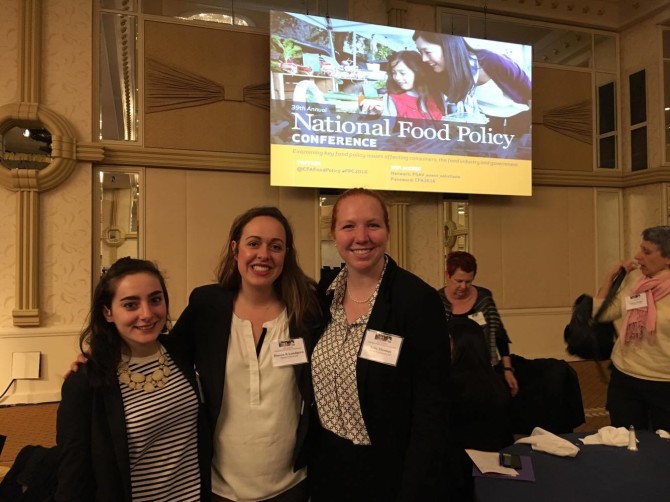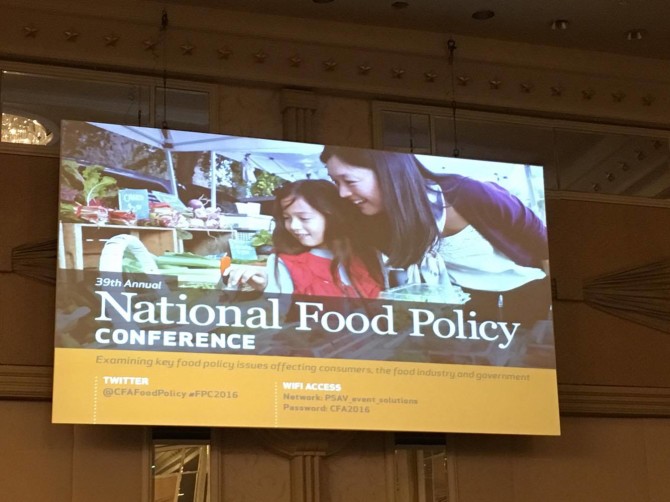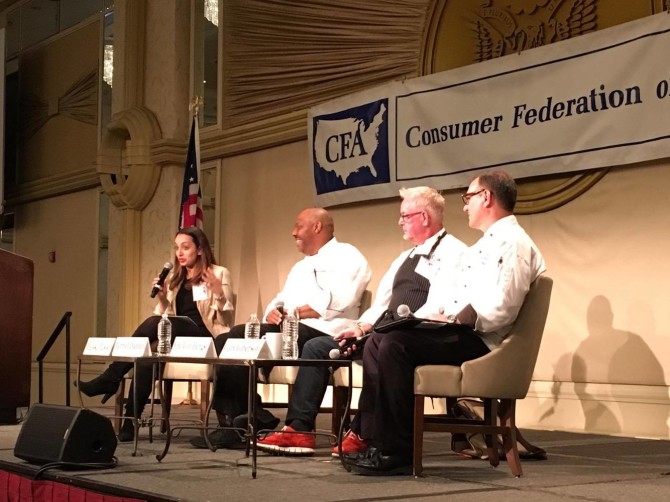On April 6th and 7th, leaders in food, nutrition, and agriculture from across the country gathered to further discussion on current food policy issues. As boring as that might sound to you, there were some exciting and dramatic updates. Spoon AU was lucky enough to cover the event and we’re here to tell you all about what you missed.

Photo by Erin Thomas
The drama started before the conference even began. As the panels were organized and discussions were planned, questions arose about a certain expert. The panelists on the “Turning Nutrition Science Into Policy” panel rejected the participation of Nina Teicholz who had just published a book criticizing the suggestion for low-fat dairy in the dietary guidelines.
The other panelists, including representatives from the USDA and the Center for Science in the Public Interest refused to have her on the panel. The outcome? Extended monologues from policy experts who rarely have such an audience which meant limited time for questions. So much for a discussion. Not exactly House of Cards, but the bar is lower at conference about food policy.

Photo by Erin Thomas
Tension persisted in the concurrent session on “Rethinking Antibiotic Use in Agriculture.” With representatives from the USDA, George Washington University’s School of Public Health, and Tysons Food, the audience was already expecting some excitement. The conversation revolved around transparency and conflicts of interest.
The context is overall miscommunication on the use of antibiotics in the agricultural industry. Tyson boasts an 80% decrease in their antibiotic use in broiler chickens since 2011, while the FDA indicates a 20% increase in antibiotic sales from 2009 to 2014. Proposals for integrated tracking systems of antibiotic use came out of the conversation. The result? A small win for transparency and a major hit to Tyson.
https://t.co/HgvVj2g7E9 ironic that their Vice President is currently on a panel about this very topic #irony #FPC2016
— Emilie. (@emiliesayshello) April 6, 2016
On a less dramatic but more inspiring note for all our foodies, there was a panel of chefs. The culinary aspect of food policy is often forgotten in the conversation, and having a whole panel of incredible chefs was a huge step. They discussed their efforts toward healthy eating patterns, sustainability and community impact.
Chefs from D.C. Central Kitchen, Sustainable Fare and Silver Diner considered their roles in shaping food policy and brought fresh energy to the day full of politics and artful passive aggression. From curating healthy kids menus to empowering communities through healthy corner stores, these chefs are the practitioners that need to be leading change on the front lines.

Photo by Erin Thomas
To an outsider, this event might seem like a series of policy geeks babbling on about their areas of expertise, but with context, the discourse is thrilling. These are the leaders shaping how we regulate what goes in our bodies. It is our responsibility to hold them accountable and demand public health and safety. It’s a whole lot more exciting to follow with the political drama that Washingtonians know too well.


